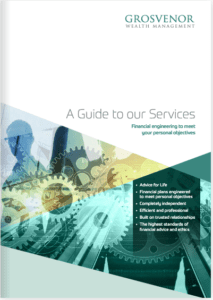Business Protection
Protecting your business finances
Protecting your business finances
We believe that long-term financial planning for your business should usually include some form of protection for your business finances, so you’re prepared for any unexpected challenges that your organisation may face. There are a number of products available to businesses to protect their finances against these potential events. Yet, according to a large insurance provider, more than half of UK SMEs have no relevant cover.
Talk to one of our business finance experts and we will be able to assess your needs, talk you through the following options and help you to settle on the right approach for both you and your organisation.
Types of protection available to business owners:
Key person protection
If you or a key member of your staff became critically ill or pass away unexpectedly, how would the business cope? As well as the costs of potentially replacing the employee, if your business is relatively small, losing them could also lead to the loss of valuable knowledge, client relationships and ultimately, income.
Taking out key person protection could help to smooth over any transition, as the pay-out can be used to cover the costs of recruiting a replacement, or even to mitigate any loss in profits.
Whether your business is a limited company, a partnership, or you are a sole trader, a key person protection plan will provide cover for you or any partner or employee who is valuable to your business. For limited companies, any payment goes directly to the company. If you are in a partnership or are a sole trader, the policy is held under trust and the trustees own the policy.
In some circumstances, there may be tax relief available on premiums. In all cases, it’s a good idea to talk to an IFA about your particular circumstances before you make any decisions.
Shareholder protection
If a major shareholder becomes critically ill or dies, it can sometimes be difficult for the remaining shareholders to find the immediate funds they need to buy back that person’s shares. A shareholder protection policy provides life and/or critical illness cover, held under trust, so any pay-out will give them the means to buy the shares back, with the option of keeping them or selling that share of the business, while enabling the company to continue trading effectively.
Because the policy is held under trust and owned by the trustees, the payments won’t be viewed as part of the person’s estate for inheritance tax purposes. However, in some circumstances there may be capital gains tax implications for the beneficiaries if the value of the shares rise substantially between death and any sale. If you’re concerned about the tax implications, we can give you advice based on your own particular situation.
Business loan protection
This is a life policy that covers the business to pay off any outstanding loans if a major shareholder, partner or employee becomes critically ill or dies. As with key person protection, if your business is a limited company, the company owns the policy, while if you’re in a partnership or a sole trader, the policy is held in a trust.
Essentially, the purpose of this cover is to pay off any specific loans to the business if the person covered dies or becomes ill and is unable to pay. There are unlikely to be any tax implications, although some charges may apply on some trusts, so it’s best to get advice from an IFA on the best policy for your business.
Relevant life plans
A relevant life plan is a form of life insurance set up by a business to provide cover for the life of an employee, with any payments going to the employee’s family or dependants. The policy is held in trust and the beneficiaries can include the employee (for critical illness cover), their spouse or civil partner and any of their children or grandchildren, including step-children.
This can be a tax-efficient approach for both employers and employees. There are no income tax or National Insurance liabilities on the payments and usually premiums can be treated as a business expense and claimed against income or corporation tax. This will depend on whether the policy meets certain tax rules, so it’s always advisable to ask your IFA for guidance.
Why use Grosvenor Wealth Management?
An Independent Financial Adviser is not a one-time support agent. They provide you with ongoing support over a lifetime and guide you through a variety of different financial areas that you will no doubt encounter and have questions on.
Our Independent Financial Advisers are here to help you with your financial planning. Our team has over 100 years of combined experience In total, we are a technically based, sustainable practice. We aim to work with our clients for life and thoroughly enjoy what we do. We can manage the wealth of one individual, a couple or a whole family. It’s your choice. If you would like to discuss the possibility of becoming one of our clients, please speak to us.
Testimonials
“The team at Grosvenor have really helped us think through our options for different scenarios and created us a versatile financial plan. Great practical and knowledgeable advice. Thank you.”
“Attention to detail and nothing is ever too much trouble”
“They have the ability to support me across an unusually wide breadth of services including estate planning. Fundamentally I trust GWM and I see this as a long-term relationship for my whole family”
“I feel empowered and more optimistic about moving on to the next phase of my life.”
“Grosvenor were the outstanding exception in doing what they promised without fuss and within the timescale promised. Thank you very much for your help. After the sale of another property later this year, we look forward to reinvesting the money with you.”



